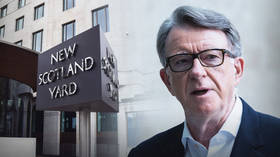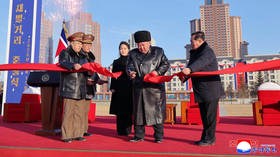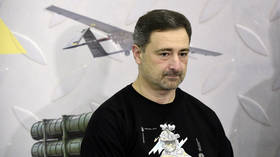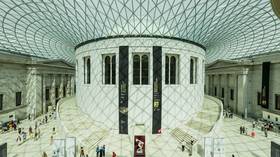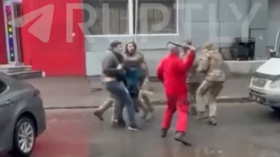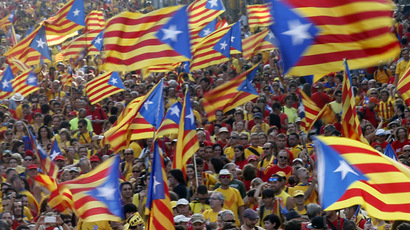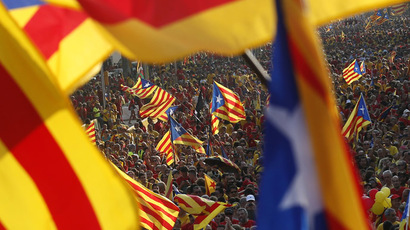‘Nobody is allowed to break up Spain’: Madrid court suspends Catalonia vote
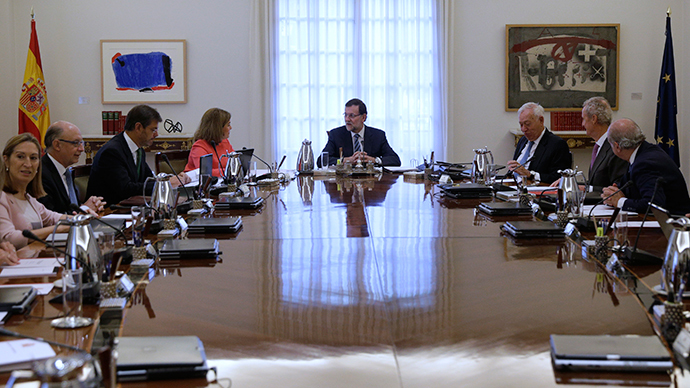
Spain’s Constitutional Court decided Monday that Catalonia has no right to vote for its independence. The independence referendum planned by Catalonia’s President for this November was unanimously suspended by 12 judges.
READ MORE: Catalonia president orders independence referendum on Nov. 9
Speaking in a televised address after an emergency cabinet
meeting Monday, Spanish Prime Minister Mariano Rajoy said he
regretted Catalonia’s president Artur Mas’s decision to call for
separation from Spain:
“I regret it because it’s against the law; it’s beyond democratic
law, divides Catalans, distances them from Europe and the rest of
Spain and seriously damages their welfare.”
Madrid has not yet voiced the government’s further plans beyond
the appeal, although Rajoy is sure the Catalan president’s
initiative, “being illegal won’t see the light of the
day”.
“Nobody and nothing will be allowed to break up Spain”,
the Prime Minister said.

A little earlier, the Spanish Conservative central government
filed two appeals – one against the law by the Catalonian
parliament allowing for the region’s vote for independence and
the second one against the decree signed by the Catalonian
president calling for independence.
Now that the suspension of the November 9 independence referendum
has been approved, the court has five months to examine the
matter.
Meanwhile in Catalonia, a large majority of the local population
wish to hold a referendum, according to the latest polls. Many
people have been encouraged by the September 18 Scottish
referendum, where independence supporters were quite close to
victory, losing by only about 10 percent to those in favor of
staying in the United Kingdom. Some Catalans, unhappy with the
Spanish ‘no’, have even been seen waving Scottish flags during
the recent protests.
Experts now expect that the region’s president will call early
local elections.
“We will not stand by idle after this suspension,” said
Francesc Homs, spokesman for Mas’s government, following Rajoy’s
announcement.
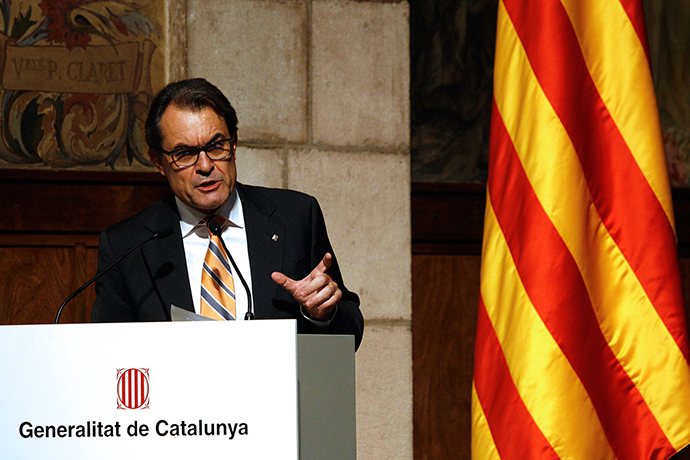
On September 19, the regional parliament in Catalonia voted by
106 to 28 in favor of granting the president the power to hold
the referendum.
“We want to be free, we want a new country,” ran the
slogan of local political parties that support the government of
President Mas.
According to the Catalan leader himself, “the future is
something you conquer, not a gift, and we have to earn
that.”
Just as the court was deciding against the Catalan vote, Mas
presented a so-called “white book” in Barcelona. The 18-chapter
document covers the issues of defense, social security, trade
relations and financial viability plus some other steps that
Catalonia will take if it manages to gain independence and
integrate with the EU.
Catalonia is considered one of Spain’s richest industrialized
regions. With the population of 7.5 million people – about 16
percent of the Spanish inhabitants – the region has its own
language, culture and is proud of its independent-minded
citizens.
Back in 2006, the region formally gained nation status. However,
the claim was subsequently overruled by the Constitutional Court.



